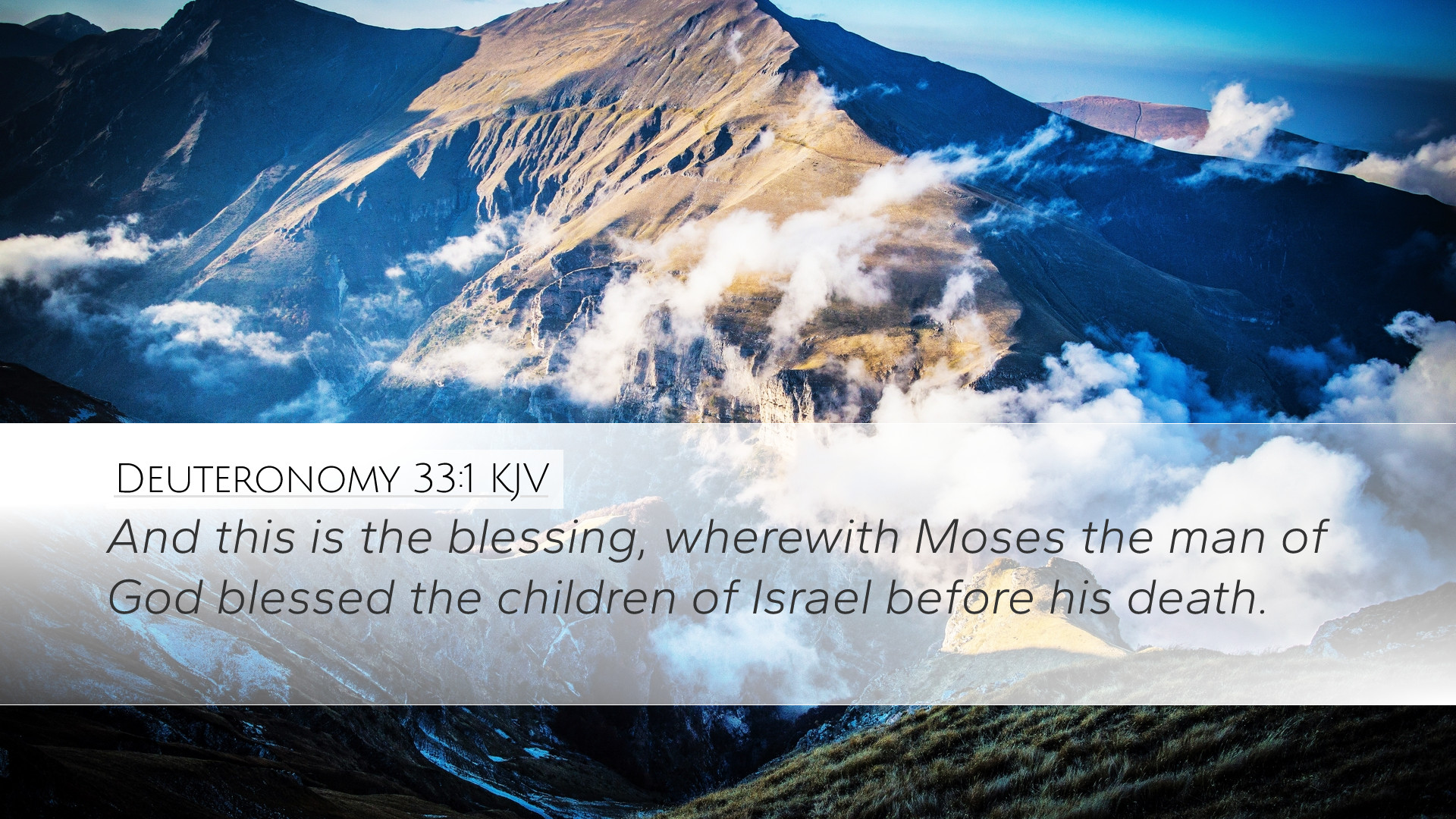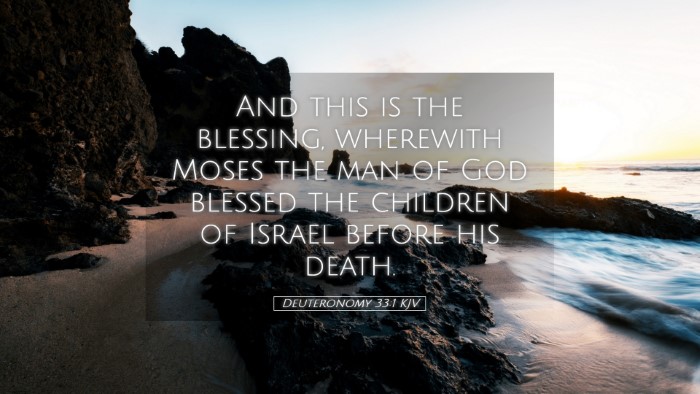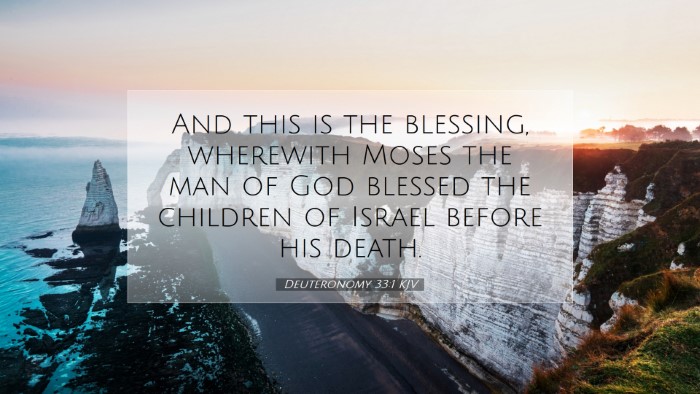Commentary on Deuteronomy 33:1
Deuteronomy 33:1 states: "And this is the blessing, wherewith Moses the man of God blessed the children of Israel before his death." This verse serves as a pivotal entry point into the final blessings pronounced by Moses over the tribes of Israel, marking a significant moment within the larger narrative of Deuteronomy.
Introduction
The significance of Moses as the "man of God" is paramount in this verse. His identity is not just a mere title; it encapsulates his prophetic and mediatorial role between God and His people. This designation underscores the honor and authority he carried when delivering God’s message. In this commentary, we shall explore insights from esteemed public domain scholars such as Matthew Henry, Albert Barnes, and Adam Clarke, aiming to shed light on the depths of this passage.
Moses: The Man of God
Moses' description as the "man of God" is elaborated upon by Matthew Henry, who asserts that this title signifies his close relationship with God and his role as a mediator. Henry emphasizes that this title points to Moses’ humble and faithful service to the Lord, which is exemplified through his leadership and intercession for the people of Israel.
Matthew Henry: "Moses was no mere political leader; he was a prophet, a lawgiver, and a priest in his own way, leading the children of Israel in both civil and spiritual matters."
The Context of the Blessing
This passage precedes a series of blessings pronounced on the tribes of Israel, making it clear that Moses is setting the stage for Israel's future. Albert Barnes points out that the blessings served not only as a farewell but also as an encouragement to the Israelites regarding their future conquests and challenges.
Albert Barnes: "Moses' blessings serve as an important reminder of God's promises and the covenant relationship that binds Him to Israel."
Theological Implications
This moment in Deuteronomy must be understood within the broader theological narrative of Scripture. Adam Clarke highlights the importance of blessings in the Hebrew tradition, noting their capacity to convey divine favor and purposes. Consequently, throughout Israel's history, blessings became essential in shaping their collective identity as chosen people.
Adam Clarke: "In the ancient world, blessings were not mere words; they were powerful declarations that influenced the destinies of individuals and nations."
Significance for Today
For contemporary pastors, students, and theologians, the significance of this verse lies in its representation of God's ongoing covenant with His people. The role of Moses exemplifies the ideal servant leader who communicates God’s will and encourages a faithful response among the congregation. Pastoral leaders can draw from Moses’ example by praying for their communities and seeking to bless them through their teachings and actions.
Moral Reflection
As members of the faith community reflect on this passage, they may consider how they can embody the characteristics of a "man or woman of God" in their lives. This call to holiness and service is echoed through both the implications of Moses’ blessings and their own communal responsibilities.
- Leadership: Understand leadership as a servant role dedicated to the welfare of others.
- Intercession: Engage in prayer and intercession for fellow believers, just as Moses did for Israel.
- Understanding Blessings: Recognize the importance of blessings and their power in shaping lives and communities.
Conclusion
Deuteronomy 33:1 encapsulates a moment rich in theological, historical, and practical significance. The transition of leadership from Moses to Joshua invites an exploration of God’s faithfulness and the continuity of His promises. Through the lens of Moses’ blessings, believers are reminded of their covenantal relationship with God and the impact of faithful leaders who have come before them.
As they study this passage, they are encouraged to contemplate their roles within the faith community, aspiring to be agents of blessing who reflect the divine favor bestowed upon them.


